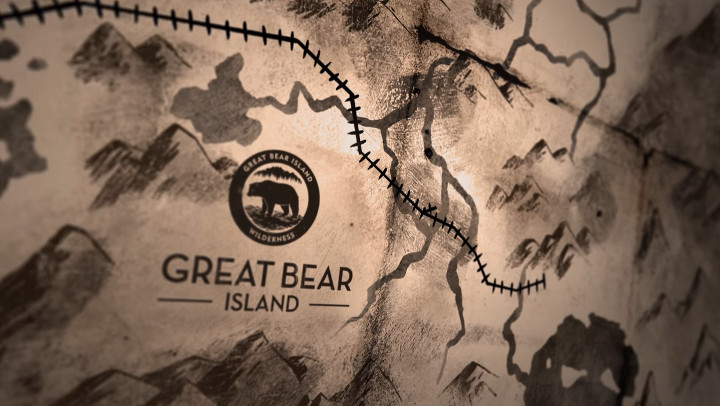
I love survival games. The survival genre is by far my preferred genre, and The Long Dark is on my list of greatest gaming experiences of all time. There is something so very satisfying about trying to balance health, hunger, thirst, warmth, sleep, and disease levels. And the more of these elements a game has, the more invested I get.
Playing survival mode in Fallout 4 completely transformed the game into something different for me. It became far more engaging, contemplative, and rewarding than what the game offered at launch. In fact, I would even say it was surprisingly punishing for a mainstream “triple-eh” release. Bethesda is no stranger to adding these elements to their games, and I would love to see more big-name studios implement survival modes into their blockbuster titles — so long as it makes sense, of course.
The survival mode in Far Cry Primal made the game more engaging and more… I’m tempted to use the word inhabitable here, if that makes any sense.
Without its survival elements (this is by design, of course), Conan Exiles would’ve been relegated to the discount bin as yet another awful Conan hack ‘n’ slash. I mean, it still kind of was another awful Conan hack ‘n’ slash, but it was that initial punishing learning curve that caused me to plug tens of hours into a game I wouldn’t otherwise have paid any attention to.
By adding an extra element of danger — of permadeath, or a lack of abundant healing items, or needing to worry more about hunger now rather than later — these games require the player to engage more, to listen to what the game is telling them rather than to just barrel through the campaign like a wrecking ball.
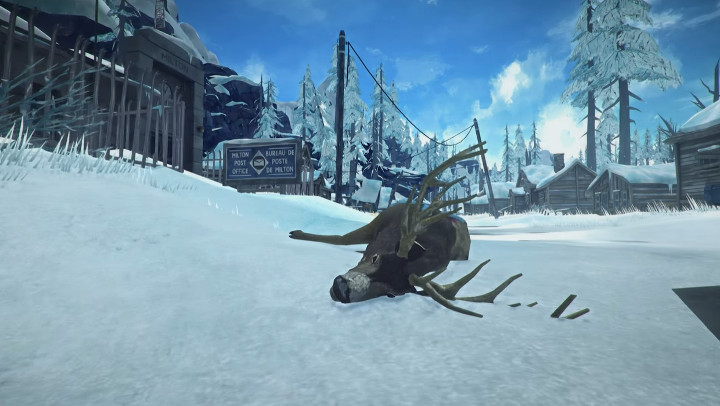
So this is probably a good time to establish some definitions. What exactly do I mean when I use the term survival game?
In general, but not exclusively, here’s my working definition of survival games:
Video games that introduce elements of stat management on a consistent moment-to-moment basis within a hostile environment. A general sampling of these stats would include hunger, sleep, warmth, thirst, disease, sanity, and stamina. The player must micromanage these stats or succumb to their deleterious effects.
Onca again, I will use The Long Dark as an example. In its survival mode, you must stay well-fed, hydrated, and warm, all while keeping your exhaustion at bay. The associated meters actively drain over time, but that drain increases as you tax these stats. Running will sap your hunger, thirst, and exhaustion meters faster than if your were to walk. Being tired will reduce your carrying capacity, eventually causing you to become over-encumbered. Being over-encumbered will drain your hunger, thirst, and exhaustion meters faster. Everything affects everything else, and there is seldom a moment of reprieve.
Add to this the hostile wolves and bears scattered around each map, as well as the fact that the weather changes (sometimes dramatically if you aren’t mindful of the weather patterns), which can easily lead to hypothermia and frostbite if the wind is ravaging or if the damp snow has saturated your clothing.
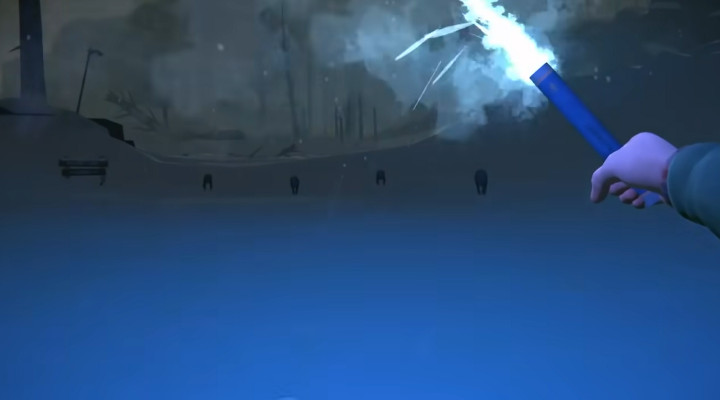
At its core, The Long Dark‘s survival mode is about finding your next meal while also worrying about finding enough sticks to cook said meal (and to stay warm and dry while eating said meal once you’ve cooked it). There aren’t any bosses to beat, or dungeons to crawl, or any real purpose other than to see how long you can survive and how much stuff you can stockpile or craft in the pursuit of survival.
To me, this is the purest form of survival game. I play these games simply for the sheer sense of joy when I find that much-needed book of matches, or when I stumble upon that lone cabin during a blistering blizzard in the dead of night, which allows me to survive a few more minutes at least.
So far, this all seems pretty cut and dry. But I should pause here to point out that game genres, in general, are difficult to define. Survival games are no exception.
For example, I don’t consider survival horror games a part of the survival game genre. At their core, survival horror games usually point the emphasis on surviving horrific circumstances with some general limitations on equipment or items. Pure survival games, on the other hand, usually place the emphasis on real-world survival elements. Survival horror games will make you scrounge for bullets so you can kill your way through a particularly tough cluster of monsters, while pure survival games will make you scrounge for cans of peaches and a place to rest for a while.
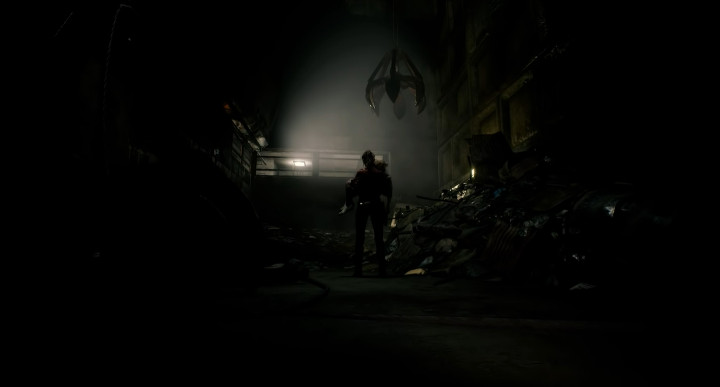
Yes, in the classic Resident Evil games (Resident Evil is the franchise that coined the term survival horror), you are trying to survive the zombie onslaught. You must manage your inventory carefully, since resources are scarce and one bullet can be the difference between victory and swift defeat. But it is the horror element that defines Resident Evil; the survival portion of survival horror is just referring to the fact that you must be a little bit more frugal with your inventory.
In fact, I would argue that true survival horror (the Resident Evil style of survival horror) is a subgenre of horror games, rather than a subgenre of survival games.
However, a game like The Forest offers some of the most genuinely terrifying horror elements I’ve experienced in recent memory, yet those are combined with rewarding and grueling survival elements. The Forest expertly straddles the fence between survival horror and true survival game.
Dead Space, however, is purely survival horror.
The water gets a little muddier when you consider that roguelikes often contain some of the elements that define survival horror games (roguelikes themselves are an interesting genre to consider when talking about definitions, but that’s a conversation for another time — or a classic Half-Glass Gaming podcast episode…)
Neon Abyss, for example, is a roguelike side-scrolling action platform shooter. It requires the player to manage their health, as well as their inventory (keys to unlock doors and chests, grenades to find hidden rooms, etc.) This is an overly simplistic summation of Neon Abyss, but you can see how, when boiled down to its most basic elements, Neon Abyss contains many of the same survival demands as a game like Resident Evil.
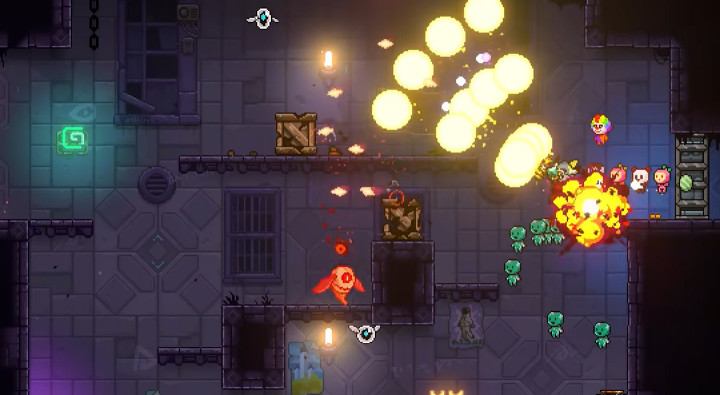
Perhaps a better example is Spelunky 2, which starts you off with four bombs and four lengths of rope. As you make your way through its randomly generated caves, you have to micromanage your use of bombs and rope or you’ll find yourself lacking those things when you need them most.
Of course, I don’t consider item management of this ilk at all comparable to the item management within a game like The Long Dark. In a true survival game, you need to find food while being mindful of its expiration date and whether or not it will negatively impact your thirst meter. Will this food require you to cook it? If so, you must manage all of the other meters to ensure success in something as simple as heating up a banged-up can of beans. In a true survival game, managing your inventory is a balancing act between various stat meters, whereas in a survival horror game (or a roguelike), managing your inventory is about working within the severe constraints of a very small box (or very small quantities).
But how do we make these distinctions? Where do we draw our lines? How can we categorize games that are very different from one another, yet mirror each other in key ways? Do you focus on the major gameplay elements and ignore the smaller ones because that makes it easier to qualify? And if so, do you not then run the risk of ignoring a part of the game, even if it is a small part, that could skew your opinion of the overall experience?
For example, the original Mafia game is an open-world crime game. I think we can all envision what that might entail. But to omit the fact that there is one mission that is a full-fledged car race (and a poorly implemented one, I might add) would do anyone a disservice if they absolutely hate racing games. But does that make Mafia an open-world crime racing game? Not really, but also kind of.
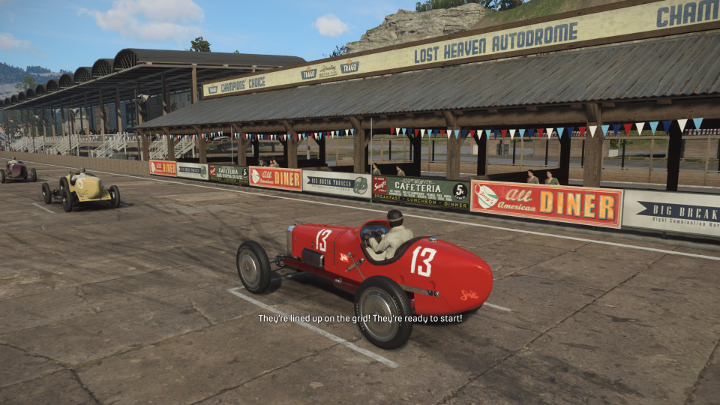
It gets even stickier with games that use survival elements merely as window dressing, or even worse, as a means of requiring the player to check off boxes with no meaningful engagement. If a hunger meter simply depletes and its adverse effects are barely perceptible, than what is the point of including hunger in the first place? And don’t get me started on the longstanding tradition of using food items for health replenishment.
And I know, I am asking a lot of open-ended questions and failing to answer most (or possibly all) of them. At the end of the day, I don’t have the answers. But I don’t think the game industry at large has the answers either. And without real answers, isn’t asking these questions a decent place to start?
Then again, perhaps the answers don’t really matter, considering how subjective labeling can be. I mean, at the end of the day, a genre isn’t much more than a shorthand elevator pitch for those who habitually browse gaming titles on digital storefronts.
But I would like to think that as long as we continue to utilize the shorthand of genre labels, it would be helpful if there could be a universal set of guidelines to clarify the matter. And how awesome would it be if this were the point in the article that I manifested such list?
Alas, I have no such list. I apologize if you made it this far with the hope that one might emerge.
If you’ve ever been duped into buying a game based on the genre description alone, only to find it doesn’t quite fit the bill, then you’ve witnessed firsthand the shortcomings of genre labels. And if you’ve ever tried describing a game to someone else, you’ve seen the other side of that same coin. In either case, you probably can see how it might be time to rethink labels and come to some sort of consensus about defining game genres.
At the end of this increasingly lengthy day, we can’t draw clear lines, but we can at least acknowledge that such lines would make things easier. And that feels in some ways like a stalemate. But at least we played the game, and at least we survived it, if only for the time being.